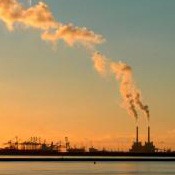A new report written by Ecosystem Marketplace for the Global Alliance for Clean Cookstoves (GACC) highlights the growing role of carbon finance in driving clean cookstove distribution in developing countries around the world. More than half of the clean efficient stoves distributed in 2012 were financed in part by carbon offset. Cookstoves were also the third most popular offset project on the voluntary market in 2012.
This article was originally published in the V-Carbon newsletter. Click here to read the original.
3 October 2013 | A new report written by Ecosystem Marketplace for the Global Alliance for Clean Cookstoves (GACC) highlights the growing role of carbon finance in driving clean cookstove distribution in developing countries around the world, where cookstove smoke still kills four million people a year. More than half of the clean efficient stoves distributed in 2012 were financed in part by carbon offsets, which contributed $167.3 million to the sector.
“We think it’s working,” former US Secretary of State Hillary Clinton said of the GACC’s goal to distribute 100 million clean cookstoves by 2020. “More than 8 million clean cookstoves were distributed last year alone, that’s more than double the number in 2011.”
Ecosystem Marketplace surveyed the Alliance’s 800+ partners, finding that cookstove projects are typically funded by a mix of public, private-sector, and not-for-profit financing, with carbon offsets covering 16.9 million tonnes (MtCO2e) in carbon emissions supporting the dissemination of at least 4.1 million stoves. About half of the demand for these carbon offsets came from European buyers subject to compliance cap-and-trade program. The other half came from buyers on the voluntary market.
Because of their joint health and environmental benefits – and because they primarily benefit the women who use them – cookstoves were the third most popular offset project on the voluntary market in 2012. Offsets from clean cookstove projects sold for an average of $9.9 per tonne (/tCO2e). Though this is lower than the average 2011 price for cookstove offsets ($13.2/tCO2e), it is much higher than the average voluntary market price across project types ($5.9/tCO2e) and the average certified emissions reduction (CER) price ($3/tCO2e).
Cookstove projects are “charismatic” indeed. However, the future is uncertain: some project developers fear that prices will fall as more cookstove projects begin to sell offsets, especially if compliance markets falter.
Read Ecosystem Marketplace’s full coverage of the issue here and access the full report from the Alliance. These and other stories from the voluntary carbon marketplace are summarized below, so keep reading!
—The Editors
For comments or questions, please email: [email protected]

  |
|
Forest Trends’ Fundraising Challenge
Forest Trends’ work doesn’t grow on trees – we rely on readers’ generosity to help keep them standing.
Now through November 22, (and for the cost of a typical lunch!), donations to Forest Trends’ Crowdrise campaign could leverage up to $1 million in matching awards through the Skoll Foundation’s Social Entrepreneurship Challenge. Help Forest Trends expand our vital services to communities and experts on the front lines of ecosystem conservation. $10 will go a long way!
|
 |
|
 |

 |

 |
Voluntary Carbon
Help us rise to the challenge!
Ecosystem Marketplace’s parent organization Forest Trends is embarking today on its first-ever crowd-funding campaign to raise the resources for the work we do best – providing groundtruthing information and support to ecosystem conservationists and investors around the world. Every dollar contributed by readers like you brings us closer to winning additional matching funds from Skoll Foundation as we compete with 57 other NGOs in Skoll’s Social Entrepreneurship Challenge. How can you help? Give $10 (that’s not much, right?) or more via our Crowdrise fundraising page now through November 22nd. Here at Ecosystem Marketplace, we believe in strength in numbers – join the ranks of our many supportive readers and DONATE NOW!
Thailand tees it up
This month, the Thailand Greenhouse Gas Management Organization (TGO) is slated to introduce the long-anticipated Thailand Voluntary Emission Reduction (T-VER) scheme, with actual offsets open for domestic trading in 2014. The standard will cover energy efficiency, alternative and renewable energy, solid waste and transport management, forestry and green areas, and agriculture. While T-VER adapts elements from regional programs like the Japanese Verified Emissions Reduction and Korean Verified Emissions Reduction programs, Thailand uniquely recognizes domestic credits using international standards like “Crown Standard” VCS projects. Carbon programs in Asia are being designed to be comparable so credits can eventually be traded, comments Dirk Forrister of the International Emissions Trading Association.
– Read more
In the land of lemurs, REDD with a plus
The March 2009 coup in Madagascar didn’t only displace the country’s democratically-elected president – it also cut off key conservation funds, spurring an “orgy” of illegal rosewood logging. The Makira Reducing Emissions from Deforestation and Forest Degradation (REDD+) project, verified in September under the Verified Carbon Standard (VCS), aims to reverse that trend. The 400,000-hectare project will prevent 32 MtCO2e over the next 30 years in a forest that provides for people as well as 20 species of lemurs. The project is run by the Wildlife Conservation Society and marks the first time that credits generated by a government-owned project in Africa have been put on the voluntary carbon market. Makira is part of the Code REDD Campaign, and 50% of the revenue from the project’s offsets (assuming it finds a buyer) will go towards sustainable agriculture training, health, and education for local people – the plus part of REDD+.
– Read more in Mongabay
– Read more in TIME
Peering into Microsoft’s windows
This website uses cookies to improve your experience. We'll assume you're ok with this, but you can opt-out if you wish. Cookie settingsACCEPT Privacy & Cookies Policy
| |

![]()
![]()


